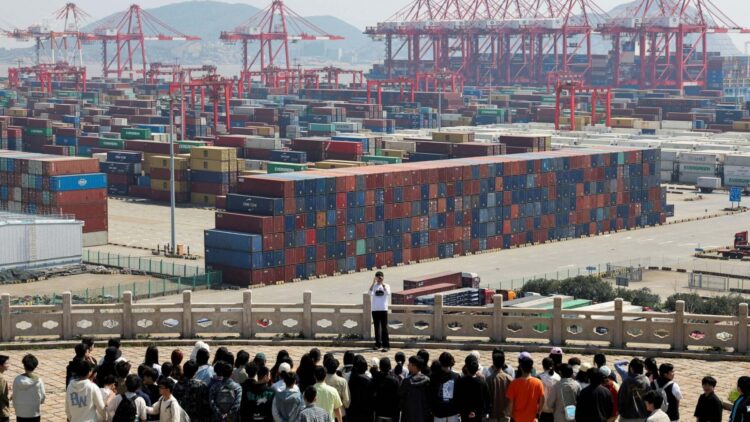China is currently facing internal and external pressures, and as a measure to find balance in its macroeconomy, it is trying to implement a strategy to address trade tensions. For the second half of the year, the idea is to focus on productive reorganization and support companies that have been affected by tariffs. Beijing aims to gradually recover its economy. Learn more about this topic.
Selective cuts and industrial discipline as a way to contain risks
China’s top leaders have pledged to support an economy that is facing various risks, by managing what is viewed as disorderly competition and beefing up capacity cuts in key industries in the second half of the year. The official news agency Xinhua said on Wednesday that leaders have signalled they will rein in price wars among producers, amid growing expectations that Beijing may be about to start a new round of factory capacity cuts in a long-awaited but challenging campaign against deflation.
Xinhua cited a summary of the proceedings of a meeting of China’s Politburo, a top decision-making body of the ruling Communist Party whose July gathering sets the economic course for the rest of the year. It said that in the second half China will keep policy steady with “flexibility and foresight”, looking to stabilise employment, companies, the market, and expectations.
Analysts said policymakers may feel less urgency to introduce new stimulus measures, as stronger than expected economic data and a continued tariff truce with Washington allow greater focus on supply-side measures to combat overcapacity and deflation.
“There is a stronger emphasis on recognising potential risks from demand-supply imbalance. The government is also more willing to take measures to battle deflationary pressure and overcapacity in the manufacturing sector. However, the stress has not pushed policymakers to commit to more immediate stimulus, as they only keep the options open if needed.” said Gary Ng, senior economist at Natixis.
Xi Jinping advocates new impetus for consumption
There is concern about the side effects that this excessive competitiveness can generate among companies, and Xi Jinping’s speech reflects this growing concern. The government has signaled that future policies should focus on expanding the population’s purchasing power, and this is due to the strengthening of domestic consumption as a strategic response.
Separately, state media quoted President Xi Jinping as saying at a symposium that China should effectively boost consumption and break the cycle of “involution,” a term widely used in China to describe a situation where intense competition among companies leads to diminishing returns, and even losses. China will continue to pursue a more proactive fiscal policy and an “appropriately loose” monetary policy, the summary showed, but unlike the April meeting made no mention of interest rates or reserve requirement ratio cuts.
Risks still keep China on alert
The world’s second-largest economy grew 5.2% in the second quarter, slightly ahead of expectations, but analysts say weak domestic demand and rising global trade risks may prompt policymakers to introduce further stimulus. China is targeting economic growth of around 5% in 2025. “Policymakers are taking a wait-and-see mode for now, but they will take action whenever the growth target is under threat,” Larry Hu, chief China economist at Macquarie, said in a note.
While second-quarter data exceeded expectations, it’s a fact that this pace may not be sustained given external uncertainties and weak domestic demand. The government appears to be ensuring stability only in the medium term by refraining from implementing interest rate cuts.
China plans growth, but waits for market signals
China has avoided hasty decisions and abrupt moves that could jeopardize capacity control and industrial restructuring efforts, and is closely monitoring developments in the tariff war with the United States. It remains to be seen whether this cautious stance will be enough to preserve growth amid an increasingly fragmented global economy.

